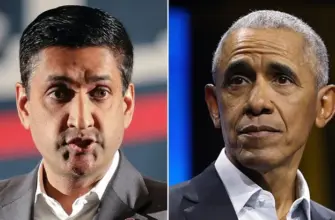Recent actions by the Department of Government Efficiency (DOGE) and the State Department have led to a significant overhaul of diversity, equity, and inclusion (DEI) requirements for evaluating foreign service officers under the Biden administration.
Secretary of State Marco Rubio lauded these changes as “important and historic,” stating on X, “Now our incredible Foreign Service Officers will be evaluated on true merit, not on arbitrary immutable characteristics.
“
DOGE highlighted concerns arising from previous policies that assessed diplomats based on their ability to avoid specific language. These assessments included judging whether they refrained from using “gendered adjectives” or offering what was deemed “faint praise.”
Illustrative examples provided in PowerPoint presentations revealed the types of phrases considered problematic:
- Unintentional Influence: The slides cautioned against descriptive language that could inadvertently sway a reader’s perception. For instance, contrasting “Dr. Sarah Gray is a caring compassionate physician” with “Dr. Joel Gray has been very successful with his patients.”
- Discouraging Faint Praise: Examples of phrases to avoid included statements like, “S/he worked hard on projects that s/he was assigned” or “S/he has never had temper tantrums.”
- Addressing Titles and Names: The presentations discouraged using first names for women or minorities while simultaneously advocating for titles for men.
Beyond performance evaluations, DOGE’s analysis revealed prior directives that pushed for:
- Promoting DEIA programs, training, lectures, and annual awards ceremonies by local organizations.
- Establishing race and gender quotas for speaking panels and other diplomatic events within embassies.
DOGE stated, “Working with [Secretary Rubio], we have ended this discrimination and restored merit to the foreign service.”
This policy shift follows a recent decision by the Trump administration to significantly reduce DEI-related funding. Approximately $15 million was cut from the Institute of Museum and Library Services (IMLS), aligning with DOGE’s efforts to eliminate DEI initiatives across the federal government.
Specific examples of cuts include:
- $6.7 million to the California State Library for equitable library programs
- $4 million to the Washington State Library for staff development and incarcerated support
- $1.5 million to the Connecticut State Library system to integrate social justice, diversity, equity, and inclusion into daily operations
- $700,000 for a Washington, D.C.-based nonprofit to study DEI practices in children’s museums
According to DOGE’s website, these efforts have reportedly saved American taxpayers an estimated $140 billion, averaging around $870 per taxpayer.
The administration claims to have eliminated hundreds of millions of dollars in DEI contracts, including at least $100 million from the Department of Education.







